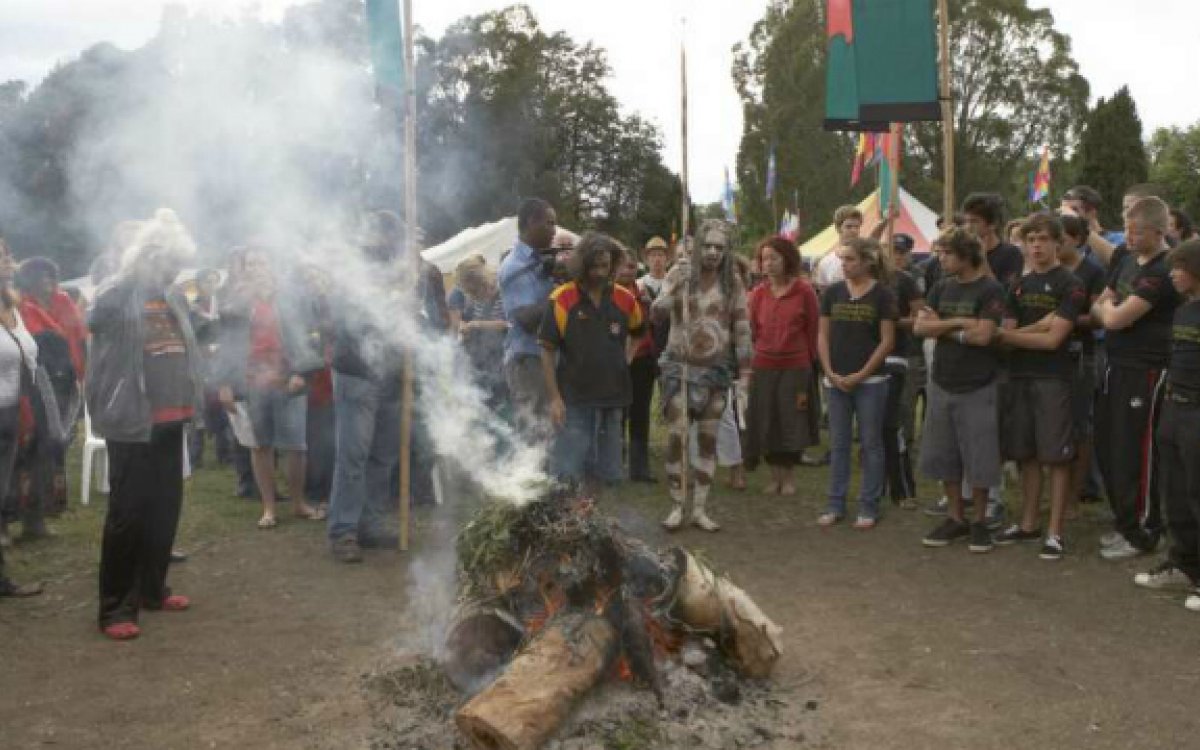Due to scheduled maintenance, the National Library’s online services will be unavailable between 8pm on Saturday 7 December and 11am on Sunday 8 December (AEDT). Find out more.

McDonald, Damian (1971-), Crowd at the Aboriginal Tent Embassy gathered around the smoking ceremony to mark the Apology to the Stolen Generations, Canberra 13 February 2008, nla.obj-131885241
The Bringing Them Home report can be found on the Human Rights and Equal Opportunity Commission website. The site also contains responses to the report and frequently asked questions.
The Bringing them home oral history project conducted by the National Library of Australia includes 340 interviews recorded by 41 interviewers. Interviews were conducted with families and children who experienced separation, as well as with those who cared for them, worked in institutions, and were involved with administration, policy and implementation in a professional capacity.
The Australian Institute of Aboriginal and Torres Strait Islander Studies (AIATSIS) online exhibition To Remove and Protect includes state and territory legislation identified in the Bringing Them Home report that enabled the forced removal of Aboriginal Children, and also includes annual reports of state and territory ‘protection boards’ and subsequent government agencies.
The Apology to Australia’s Indigenous Peoples speech made by Prime Minister Kevin Rudd on 13 February 2008 can be found on the Parliament of Australia House of Representatives Hansard website.
A useful print item is Many Voices: reflections on experiences of Indigenous child separation. Other items can be found by searching our online catalogue. Try searching with the words "Stolen Generations Australia" or "Aboriginal Australians Removal" (include quotation marks).
If you are unable to visit the Library, Trove can help you find and get items at libraries near you.
ANU Lecturer and author of Goodna Girls, Adele Chynoweth and the Library's Director of Indigenous Engagement, Marcus Hughes, reflect on the lives and stories of the women of Goodna and the role of cultural institutions in preserving the stories and experienecs of marginalised communities.